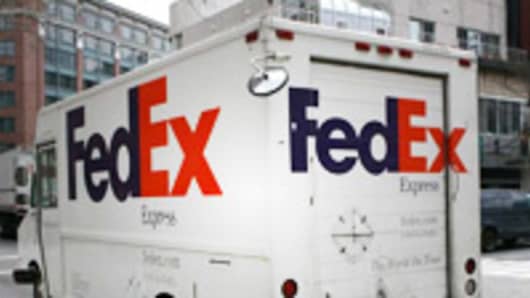From X-ray machine parts to drugs, they are just minutes away from planes that can ship just about anywhere in the world.
"It's a business in its youth globally," said Urs Dur, who covers both UPS and FedEx for Lazard Capital Markets. "But UPS does seem to have a bit of a lead there (right now)."
According to UPS, it has logistics agreements with over 500 companies. In 2010, revenue was about $6 billion and is expected to continue growing.
FedEx, however, is feverishly closing the gap.
Dr. Lisa Jennings is the CEO of Cirquest Labs, which is based in Memphis, right near FedEx's 800-plus acre Superhub.
Cirquest's proximity to the hub helped close a key deal with the American Heart Association.
"They (American heart Association) kind of relaxed a little bit about, 'Well, gee, you know, Memphis may really be the spot that we want to place this trial because of FedEx headquarters here,'" Dr. Jennings said.
FedEx has a facility dedicated to maintaining and fixing its own electronic equipment. Now, it's opening it up to fix machines from outside companies.
“If you were a manufacturer of PCs or hand-held devices, servers — those kind of things — those would be definitely in our target audience for what we'd be looking for,” said Cary Pappas, President of what FedEx calls TechConnect.
“We have a handful of customers that we've just signed,” jhe said. “We are probably four or five months in, so we're in our infancy at this point.”
But if this “baby” grows up as expected, it’s going to be one large and growing kid.
Follow Brian Shactman on Twitter: @bshactman
________________________________



